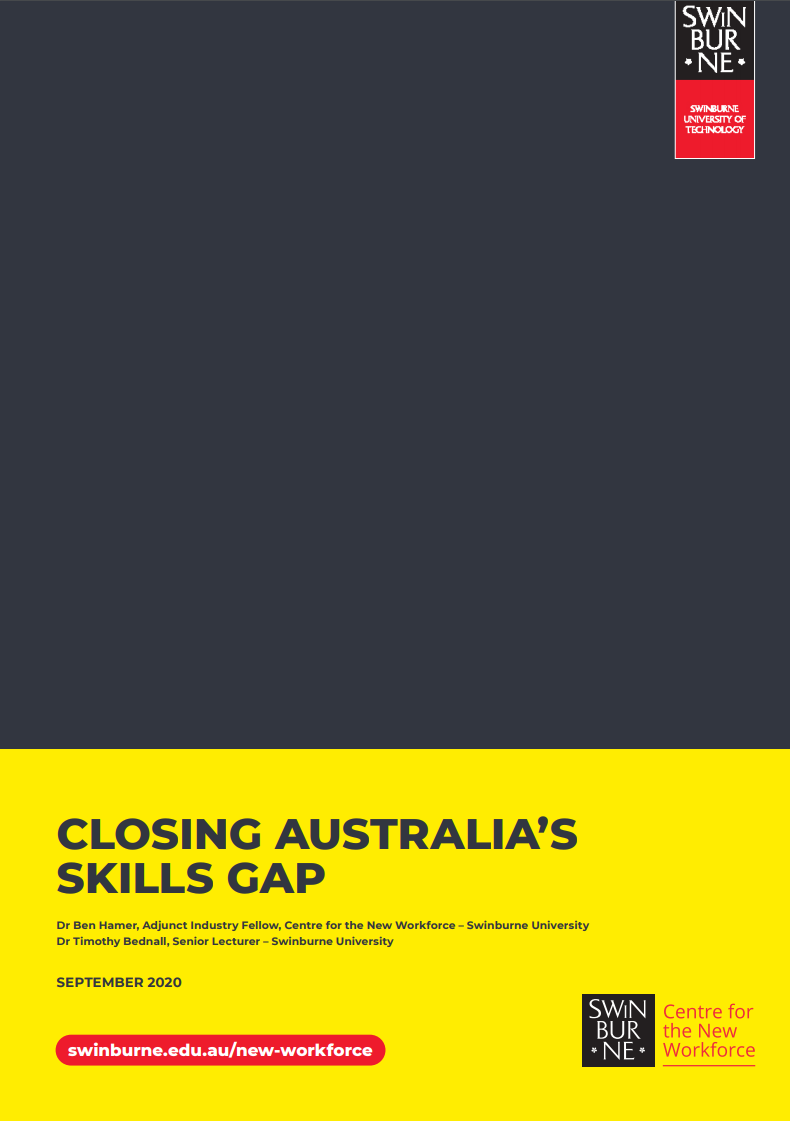Closing Australia's Skills Gap
Many jobs are undergoing major changes due to advances in technology. New ways of work are emerging. Learn more about closing Australia’s skills gap.

Closing Australia's Skills Gap
Work is changing. Fast.
New ways of work are emerging, cognitive technology is advancing, global delivery models are the norm, and demographic shifts are changing the expectations of workplaces.
We know that many jobs are undergoing major changes because of automation, digitization or augmentation. These shifts have resulted in a gap between the skills needed by employers and the skills available in the labour market. The skills gap has only widened as a result of the unprecedented disruption caused by the coronavirus, or COVID-19, outbreak.
The disruption from the COVID-19 outbreak is likely to have a significant impact on the world economy. Yet, the present situation also provides an opportunity to envisage what a post-coronavirus world could look like, beyond a return to “business as usual” approach.
Closing the global skills gap could add US$11.5 trillion to global GDP by 2028. Moreover, increasing the skills base of the workforce can help individuals improve their career mobility, ultimately helping them to find more fulfilling work. In Australia, while 78% of CEOs believe that the availability of key skills is a top threat to growth, only 23% of employees say that upskilling is happening in their workplace (PwC, 2020).
To address this skills gap, and support the post-coronavirus social and economic recovery effort, a collective effort is required across government, industry, educators and individuals.
-
“Whatever we thought 2020 was going to be about, think again. Take the opportunity to invest in the skills of your workforce… to emerge stronger and more productive on the other side.”
Prime Minister Scott Morrison at the 2020 Australian Financial Review Summit
Addressing the COVID-induced skills shortage
Capability building
In the current environment, focus on building digital literacy, virtual collaboration, building rapport, displaying empathy, and impactful communications.
Community learning
Support displaced individuals, or those with spare capacity, through the provision of open and community-accessible low-cost education.
Cross-sector mobilisation
Upskill individuals who can apply similar skills into a new environment, prioritized to an in-demand area.
Career shifting
Re-skill individuals and cohorts who are temporarily shifting into a completely new roles.
Contact the Centre for the New Workforce
Contact us to discuss how we can work together to determine new approaches to learning and knowledge creation.
Call 1300 633 560 or email edge@swinburne.edu.au.

